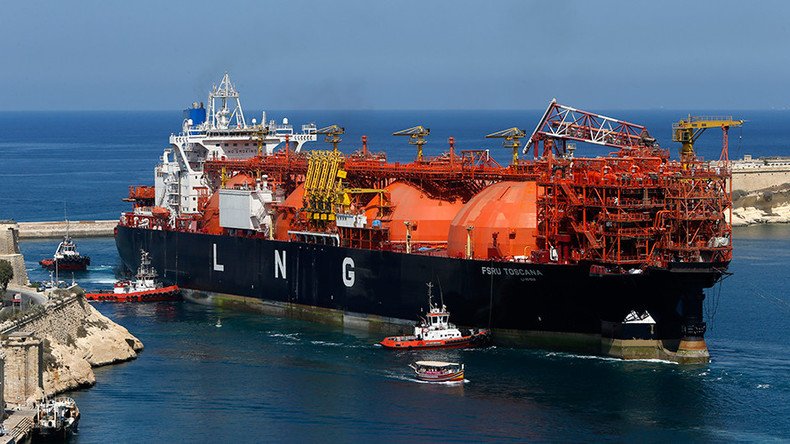Iran plans to export natural gas to Europe

Tehran has set a two year target to supply the European market with liquefied natural gas (LNG). However, analysts say the country is unlikely to ramp up production in that time frame.
Iran is aiming to develop liquefied natural gas (LNG) facilities to start shipments in two years, said Alireza Kameli, the managing director of the National Iranian Gas Export Company.
Russia to build oil rigs for Iran in Persian Gulf https://t.co/8eCvHzR2u6pic.twitter.com/hq46oq0y0Q
— RT (@RT_com) December 31, 2015The country is said to hold the world's largest natural gas reserves at an estimated 33 trillion cubic meters. But the Islamic Republic has lacked the necessary export infrastructure unlike its main competitors Russia and Qatar.
Iran is currently working on several options to “join the international LNG club,” according to a top Iranian official. Tehran might restart work on Iran LNG, the country’s most ambitious project that was abandoned in 2012 after Western sanctions were tightened.
Iran undercuts Saudi oil prices in the battle for Europe https://t.co/1UdK4vcYyYpic.twitter.com/hlblT3PBE3
— RT (@RT_com) January 21, 2016Another project involves building a pipeline under the Persian Gulf to Oman, which has LNG facilities that Iran could potentially use. Oman has agreed to build the pipeline within two years, according to Kameli. Iran is currently in talks with several European companies on building floating LNG facilities.
Tehran sees its neighbors in the Persian Gulf, namely Kuwait and the United Arab Emirates, as potential buyers of its gas. Both countries don’t own significant gas reserves and could be supplied with short pipelines. Iran presently sells nearly 9 billion cubic meters a year to Azerbaijan, Armenia and Turkey.
Iran ready to meet Europe’s gas need https://t.co/A2Y9rfYR1Xpic.twitter.com/Io1zvuOSbn
— irancloud (@iraniancloud) January 23, 2016Analysts say it will be difficult for Tehran to increase production and reach its LNG goal within two years. The energy market is oversupplied and prices have hit bottom. It is difficult to launch new LNG projects which cost billions and take years to build.












